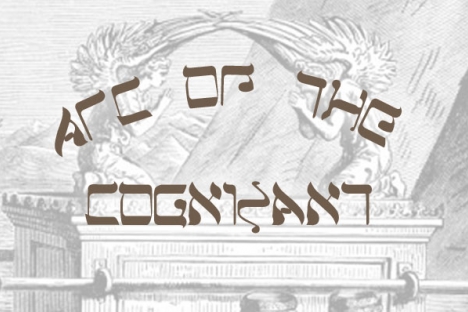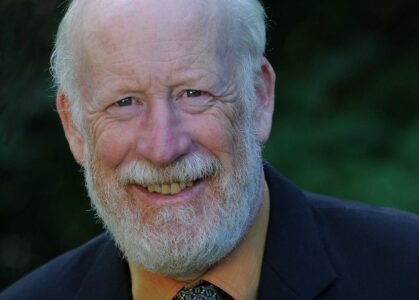Column: Philosophy, History and the Human Condition
“To sit with Elders of the human race. All will be revealed.”
— Led Zepplin, Kashmir
“Me and some of my friends, we were gonna change the world, we were gonna make it better… but it fell apart, and it broke my heart.”
— Neil Young, Giant on the Land
“… just a hippie dream, capsized in excess, if you know what I mean.” — Neil Young, Hippie Dream
by Charles Jeanes
Introduction: no method, some theme
As with my last column, this one has been put together in serendipitous fashion, with topics suggested to me by whatever has come my way in media over the past month.
The ageing process, as some like to call it, seems to have pushed me in the direction of bemusement. Perhaps it’s merely the heat and the heaviness of the air. Summer is a season for torpid, slow contemplation, not for profound epiphany.
Events and personalities cross my mental horizon, I react — with analysis or surprise or humour — and it comes out on this page when I write, or on-air when I broadcast my co-op radio program.
Marriage: frivolity in face of global ruin?
A Globe and Mail edition (July 21, Opinion section) contained two pieces on marriage and divorce. I had some responses.
Marriage is an assertion of the worth of personal life against the fear that global deterioration, violence, poverty, disease, and climate change make all such personal, private refuge worthless.
Yes, this makes sense to me. The great wide world is not larger than my interior, my mind contains the universe – human consciousness is funny that way. Therefore, the attempt to judge the relative human importance of personal against global events has no appeal to me.
Divorce: failure, or personal growth?
The writer declares that divorce is a beginning for each person to “let go of the shame and not just survive but to live, evolve, and flourish.” We evolve, we go forward, we improve: this is the orthodox belief of our time for First World individuals seeking meaning. It is the way to make sense of our failing relationships, to impose order in a chaotic social and political landscape.
Oh yes, I know this cultural meme. I encounter it everywhere among my peers. I feel I lost a love because she subscribes to the “life is constant personal growth” school of thought. She left me to grow her selfhood: another person seemed to promise advance on her path. The phenomenon of “grey divorce” among seniors with long marriages, seems to me to fit into this patterning of life.
One chooses an attitude, a perspective, a philosophy – and what follows on from that is what you have chosen. One at least has the satisfaction of saying you took charge of your path, you did not have a small walk-on part in your own life.
You made you. This is the weltanschauung of our present moment.
Films that capture cultural moments
I have just watched three films on DVD, one each about the sixties, seventies, and eighties, tell me something about the zeitgeist of each era and how they unfolded toward this moment in 2018.
The sixties were hippies, peace/love/freedom manifestoes, and anti-war sentiments as expressed in the film Hair, a movie released in 1979 but derived from a Broadway musical success massively popular in the decade before.A lyrical statement, commenting directly on how the sixties did not deliver on their promises, can be heard in Neil Young’s great song, “I want to walk like a Giant”, on the Psychedelic Pill album.
The seventies are the era of Almost Famous – this was the time of “The Me Decade” as Tom Wolfe wrote so incisively; the era for baby boomers of self-indulgence in their private cultural world ruled by music and the rockstars who were the exemplars of freedom.
Then came the eighties, their starting point marked by the election of Ronald Reagan, the ascension of the new Right in politics, and the assassination of John Lennon. Here is the time of The Big Chill, a film with excellent actors and script, portrayingthe dismal prospect of boomers settling down, marrying, parenting, joining the Establishment System they loathed as sixties university students.
A fine lyrical statement about settling down is delivered by Carly Simon in her ’70’s hit, “That’s the way I’ve always heard it should be.”
Laurence Kasdan, writer-director of The Big Chill, says the sixties generation abandoned the ethic of caring for the world and turned toward caring for themselves, their careers, properties, children, experiences. For certain, previous youthful generations have always “settled down” to the necessities of living – but when the sixties boomers did it, they carried down with them the beautiful dreams they had put into their music and politics. Hypocrisy seemed their particular sin. I feel the failures of boomers deeply, personally.
The Sixties over-promised, and the Eighties under-delivered.
Changed by time and place
When no vast transformation turned the world over despite what the sixties seemed to promise me, I left my home to go westward, believing still in dreams of revolution, seeking it where it might still bloom: California. But it was not blossoming there either.
This geographic cure (I really feel it was a cure for me personally) took me from my family and their Ontario WASP culture: keeping feelings under rationalism’s supervision, being male by being uncommunicative and repressing feeling, committing oneself to a successful career and materialist goal-setting.
When California repulsed me, I went due north to BC, my life changed for the better, and I found the soil where I could root.
Here I have absorbed the more-evolved west-coast style of being, where counselling and therapy are normal, and talking about romantic relationships and spiritual topics are the meat of so many friendships. I encountered the New Age, irrational occultism, and the turn toward spiritual concerns by post-modern boomers. All of it speaks to me in ways Ontario’s arid materialism never would.
Visits with Ontario WASPs
Going to Ontario has always meant a visit to another culture for me, since BC has altered me in profound ways. I was visiting the province of my birth in June, and the experience of conversation with my family was as usual an education.
In a time of radical change in the family – someone who is at the heart of many of our lives, is dying of cancer – my family carries on its WASP traditions.
One relative said summarily, “We’re stoical – I think that’s the word – about our feelings. My brother was going through a hard time and I told him ‘you have my phone number’ and that was how we handled it. I didn’t try to get him to talk about it. He didn’t call.”
Another relative, describing a visit to someone with terminal illness, said “It was fine, just like any other visit, nothing was different, just the usual things, playing scrabble, sharing meals.”
Just like any other time? No different? I did not ask how this could be so, when we know our loved one will not be with us long. I let it go, I practiced being non-judgemental, a virtue learned in BC.
Lastly, a younger relative, knowing his mom faces life’s end much too soon, said to me when I mentioned we had said nothing about this impending death: “You can’t do anything about it, so why talk about it?” A valid point of view, but it is not mine, not even close.
But he can talk about sports and players and games over which his words have no effect whatsoever – “you can’t anything about it.” About someone dying, about the feelings that arise, he will say nothing because there is no action to change the outcome.
Weird to a degree; but that’s just me. I simply cannot relate to my familial culture, the determination to keep feelings at bay and say the least possible words about painful situations.
It is a mental universe I do not inhabit. Mine is not better, just alien, to theirs.
Humanity for better or worse
Kim Stanley Robinson is a novelist and thinker, I might even call him a public intellectual. He has visions (read his Mars trilogy, or Aurora) describing humanity’s futures, replete with optimism for our species’ brightest possibilities; his novels are brilliant with social, economic and political detail set in well-researched technological foundations.
Kim Stanley Robinson believes in our taking the high road and solving our present challenges, and forecasts that humanity is reaching our prime ten thousand years from now.
[Here are two reviews of his novels:
https://boingboing.net/2017/11/03/the-capitaloscene.html
I read Robinson for uplift, but not conviction, in much the same way I turn to Charles Eisenstein.
I cannot be inspired by what I see of humanity in history and in the present, and the future I think most likely contains a Dark Age in the next century, when we suffer for our manifest mistakes. We may arise into new possibilities after that.
The Dark Age will be as other dark ages, but worse, and the die-off of human population and other species will be unprecedented (except by some of the five other Great Extinctions our scientists describe in the past, before humans ever existed on Earth.)
Do things get better over time?
I found myself in conversation this month assuring my 12-year-old granddaughter of some very big and very positive changes that have happened in the short span of my life, in new rights and equalities for people – women most notably – who had been held down when I was her age. She too gave me an example of progress — “they don’t murder homosexuals anymore.”
I have a responsibility not to tell my loved ones the future is dark; that is my conviction, not for their consumption. It is not my role to be a dystopic Jeremiah for this age, or at least I do not choose to be that despite some of my opinions. There are plenty of prophets of doom – did someone say David Suzuki? — and I of course read their jeremiads against the global order I so detest.
Accumulating scientific information is a fact, technological change of immense significance to us, is a fact – but I do not call that progress. Achieving justice, peace and equality among humans is progress.
The philosopher John N. Gray has much to say on this subject.
https://www.vice.com/en_ca/article/qbwqem/john-gray-interview-atheism
A former exemplar loses relevance as knowledge accumulates
Karl Marx was the guiding genius of my political and social vision during my twenties. He is the mighty thinker who explained how the consciousness of a mass of workers would inevitably drive human history forward to the end of capitalism. I so wanted this to be true, and I would speak of the Revolution when the evil capitalists must be executed so that the perfect communist future would come about. His philosophical writings on human mind, which was in fact his interest only in his pre-1848 youth, before he turned to materialism, to “scientific” economic and political analysis, now seems to me to have produced his best insights about humanity.
http://criticallegalthinking.com/2017/09/26/marxs-philosophical-methodology-grundrisse/
Marx could know very little about human consciousness in the nineteenth century, before neuroscience exploded with new discoveries from the 1960s onward. Philosophy of mind was his only tool, and it was inadequate. I feel extremely fortunate to live in the age of astounding discoveries about mind and brain.
Neuroscience tells me much about consciousness, and yet not about the human spirit and why we matter at all. Science is not the cultural category for explaining those phenomena; religion has tried but has been ruined by human political behaviour.
I will try, as many have, to come back here after I leave the mortal plane. Death will take something – “me/not me” – beyond the veil. From there perhaps “I” can tell some gifted mind what is there.
Revolutions: changing things for the worse?
Another stray world-news event has caught my eye, momentarily. Nicaragua faces a crisis of its electoral democracy.
The US intervention against the Marxian Revolution in Nicaragua in the 1980s was the prime example for me of American Imperialism, a Reaganite plot that enraged me while I was pursuing my postgraduate degree in History. Daniel Ortega and the Sandinistas were on the right side of history. Then they became the elected government, and then later still were voted out of office. And then they came back to power.
Now Ortega, after his years when he and his party were elected out of power, is once again supreme; today he demonstrates the sort of ego we have seen in men like Chavez and Mugabe: Ortega does not want to lose power and is willing to use corrupt means to keep it. Socialist, Marxian, progressive ideas do not mean a thing when hideous ego dominates the consciousness of a supreme leader.
Stalin, Mao, Castro, Pol Pot, are some of the names one must keep in mind when one is tempted to think that study of Marxian theory and philosophy will shape an ego in a moral direction.
Good ideas do not ensure human moral action. Scientific advancement does not equate to moral progress.
History: why bother?
Seeing history in real time over my lifespan, can I believe in my youthful vision of some kind of order and pattern in it? Why is 2018 so much less inspiring than I believed it would be as I gazed forward from 1970? Why have I made the study of History, as an academic discipline rather than a hobby, so crucial to my own life? I have to decide what I think about this subject because I still teach it and write about it in columns, and speak about it on my radio program.
Is studying History helping — does it contribute to making that better world I believed in when I was 20 years old? I think History as a study is valuable, but only done well, wisely, with compassion and attention to human spirit as well as human materialism.
As for what it has meant to my experience of life, my quality of living, studying History has indeed had an effect. But the “jury is out” on the question whether it made me a good person, a person whose legacy will be felt in positive manner among other people.
Teaching History to Elders
I tell my Learning in Retirement (LIR) students that each of them, an elder with many years’ experience of life and reading the news and living the politics of their lifetimes, are living repositories of history. They can be helpful in their communities, I tell them. I say that because I need to believe that I can be helpful, with my knowledge of History and how to understand it. But do I understand it?
My understanding is ultimately mine, and mine alone. I have done, and will continue to do, what I can to make History valuable to others. Their understandings are theirs alone.
Does meaning come from within mind or exist in events?
So I arrive at the place of mystery, a place where I search for meaning in human history and a pattern that might look like there is a direction in homo sapiens’ development.
Spiritual evolution is the catchphrase of many First World individualists; I admit I am frequently applying the phrase myself, trying to understand what changes humanity might be undergoing as we ruin our planet as a habitat fit for us and other species.
Conclusions
Gore Vidal famously said, intellectuals are a rare minority of people, for we try to recruit as many numbers to our ranks as we can rather than be content leave our minority status always in force.
I am an intellectual; it is how I relate to the world. I agree with Vidal, it’s a worthy project to bring more people to the pleasures of the intellectual life. I feel no superiority to people who aren’t intellectual. I just like to share this way of being.
Plato said philosophers should be kings, should rule the ideal, well-designed res publica. I do not agree with Plato.
We should, each and every human individual, rule only one’s own self. Anarchism, with profound compassion.
“In the end, only kindness matters.”


























